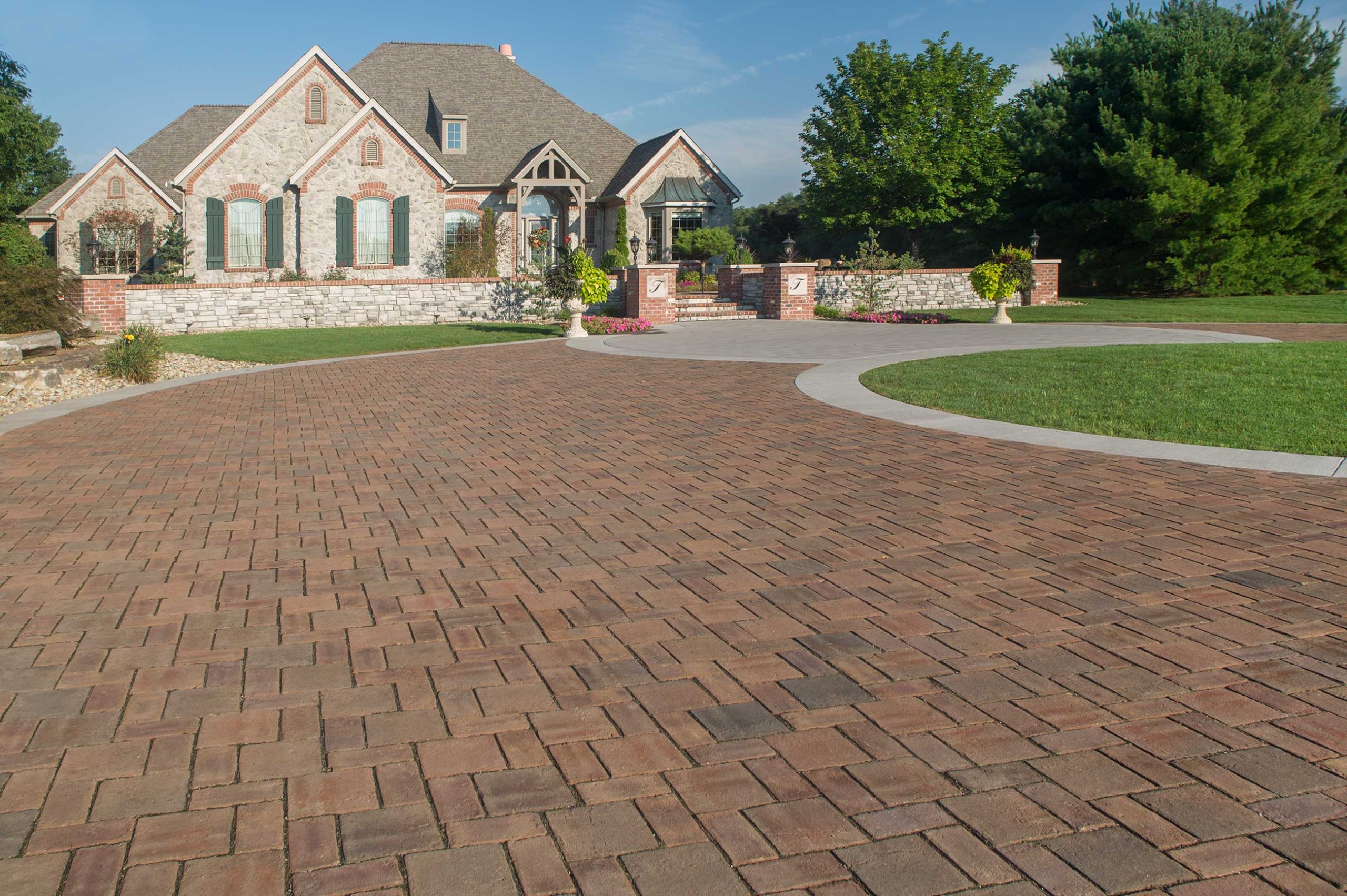Types of Paving Stones

Different paving stones offer their own distinct advantages and qualities, so it is important to know which type is right for your property and lifestyle. There are plenty of choices when selecting your paving material – each with its own advantages and drawbacks.
Clay paving stone is one of the most common types of paving material. Not only does it have excellent durability, but clay also resists freezing and abrasion damage, making it perfect for areas around your home that get a lot of foot traffic. Find out the best paving contractors adelaide south.
Clay
Clay paving stones are a popular choice for hardscapes due to their versatility in designs and colors/nuances. Furthermore, these durable stones can withstand high traffic and weathering conditions with ease.
Clay pavers are handmade from clay that has been fired in a kiln. They come in an assortment of shapes, including waal, dik, and kei sizes; additionally, they have various finishes such as tumbled or beveled edges.
Although more costly than concrete pavers, these pavers will last for years and can withstand heavy traffic. Furthermore, they’re resistant to cracking or chipping which may occur with concrete pavers.
They make for an attractive choice in both modern and country garden design, whether used for pathways, driveways, or patios.
Clay paving stones are known for their durability and natural aesthetic, making them a timeless choice for homes or commercial properties alike. With an array of styles and patterns to choose from, clay paving stones make a great addition to any property – be it residential or commercial.
They are highly resistant to discoloration from oil, diesel, fats and other stains. Furthermore, they require less upkeep than other paving types due to their reduced fading potential and ease of cleaning. However, regular upkeep is necessary and may need treating with a water-based stain solution on an ongoing basis; this will keep them looking their best.
Cobblestone
Cobblestone paving stones are an ideal way to give your driveway an old world European feel. Not only are they easy to install and durable, but they come in various colors so you can pick one that complements your home best.
Many parts of Europe still feature cobblestone streets as one of the oldest and most reliable paving methods.
These rounded stones were originally collected from river beds and glacial deposits. As safer, smoother streets became more prevalent, quarried stones with more regular shapes were utilized instead.
Cobblestones’ rounded shape makes them both visually pleasing and provides traction for those walking on them. In addition to paving roads, cobblestones have also been employed in the construction of homes, barns, stagecoach taverns, smokehouses, stores, churches, schools, factories and cemetery markers.
They can be found in many locations, such as the Finger Lakes region of New York state and Pittsburgh’s Squirrel Hill North neighborhood. Cities like Philadelphia, Boston, and Omaha boast streets paved with old cobblestones.
Paving stones can be purchased from various companies, but are usually made of the local natural stone found near you. By buying from nearby quarry companies, transportation costs are minimized as the stones are typically shipped directly to you.
Porcelain
Porcelain paving stones are a popular choice for patios, driveways, sidewalks and other outdoor areas due to their durability, non-porous nature and need for minimal upkeep. Plus they come in an array of styles and colors.
Slip casting porcelain figurines is a process in which a slurry of water is poured into a mold and drained through, leaving behind an opaque porcelain body. Different raw materials go into making each figurine; clays, feldspar or flint, and silica being the most common components.
Furthermore, these durable items are resistant to staining, fading and chemical spills. Furthermore, they’re frost-free – ideal for use in colder climates.
Finally, they are slip-resistant – especially beneficial if you have children in your home. When wet, these pavers become much less slippery than other surfaces such as concrete and natural stone.
Porcelain paving is an ideal choice for residential and commercial projects due to its low absorption rate and chemical resistance. Not only that, it is sustainable – helping reduce heat island effects and qualifying for LEED credits in new construction – but it’s low-maintenance too; no sealing necessary; cleaning can be done with either brush & mop or pressure washer. If you want to learn more about incorporating porcelain paving into your outdoor space, contact us today!
Rubber
Rubber paving stones are an eco-friendly choice that can be used for driveways, sidewalks and patios. These pavers are created from recycled tire crumbs mixed with adhesive and other ingredients to form an attractive yet durable paving surface.
In addition to being eco-friendly, these paving materials are highly flexible. This enables them to withstand extreme temperatures and ground movements – an essential factor in avoiding cracking or other damage.
These pavers are easy to install and less prone to cracking than other types of pavers, such as brick or concrete. This makes them ideal for driveways or other outdoor areas where a high volume of foot traffic is expected.
Another advantage of rubber paving is that it can be installed over existing concrete, saving you money on labour costs associated with removing and disposing of old concrete.
Rubber paving helps keep tires out of landfills and tire piles. According to the EPA, approximately 305 million tires are discarded annually in America; turning some of them into useful products like recycled rubber paving blocks helps ensure they do not end up as landfill waste.
It’s an ideal choice for playgrounds and other areas where children might fall or injure themselves. Soft and safe, its slip-resistant nature means children won’t get hurt if they slip. Furthermore, it requires less cleaning than concrete and repairs are straightforward.
Travertine
Travertine is one of the most sought-after types of paving stones due to its ease of cleaning, durability and versatility in applications. Furthermore, these stones possess antibacterial and hygienic qualities which make them an ideal choice for homes.
Travertine has the advantage of being polished to a high gloss, giving your home an ultramodern and stunning appearance. Plus, maintaining it is simple; just use some mild soap or detergent and water for cleaning up spills.
Travertine is also highly durable and resistant to weather changes, making it a great option for your home if you want an affordable material that will last for years.
Travertine comes in an array of colors, and you have the option to select either cross cut or vein cut blocks based on how they’re sawn.
Travertine pavers are perfect for creating walkways around your pool area, not only as a driveway surface but also due to their freeze-thaw compatibility and nonslip properties that make them an ideal option for navigating your backyard safely.
Maintain the beauty of your travertine pavers by regularly sweeping and cleaning them. Doing this prevents small debris from building up on the surface, leading to damage. Furthermore, applying sealer will shield them from dirt and grime accumulation.
Flagstone
Flagstone is a widely used natural stone used in residential and commercial construction projects. With various colors and patterns available, flagstone can add an original touch to any Houston landscaping endeavor.
Flagstone is often used as patio paving stone, providing homeowners with a versatile and long-lasting space that looks beautiful year after year.
Another way you can use flagstone paving stones is for pathways and walkways leading to your home. By creating a smooth, even surface for walking on, you can ensure your loved ones don’t trip or fall while exploring their environment.
When selecting flagstone paving material, take into account both your budget and landscaping goals. Do you prefer a more organic, freeform landscape or do you favor something with more uniformity and clarity?
Once you’ve identified your options, it’s time to design the layout. Generally, start by creating a base of decomposed granite (DG) or sand. This will enable the flagstones to compact and provide drainage.
Once your base material has dried, you can now place the stones atop it. You can either stack them dry or use mortar (cement) to secure them in place.
To protect your flagstone paving material from weathering, apply a water-based sealant after installation. This will let the rock breathe and slow down deterioration, but it also needs to be reapplied periodically in order to maintain its aesthetic appearance.
Business Address: 28 Adelaide tce st marys 5042
Website: https://www.landscapingadelaide.net.au/
Phone: 0430 042 058





